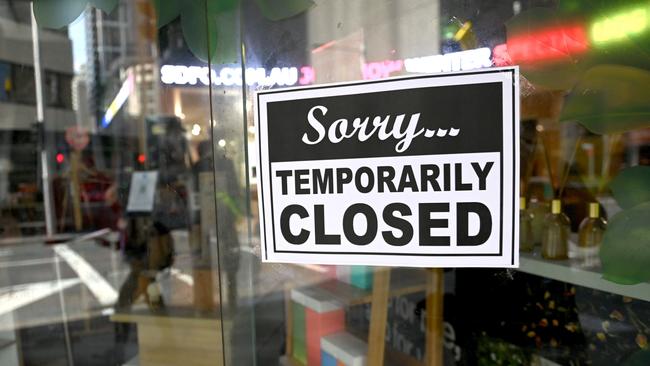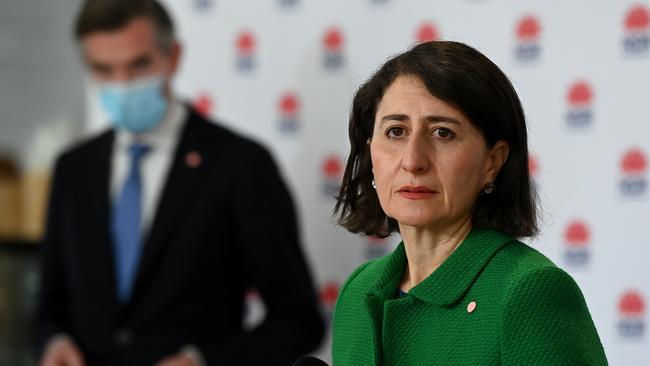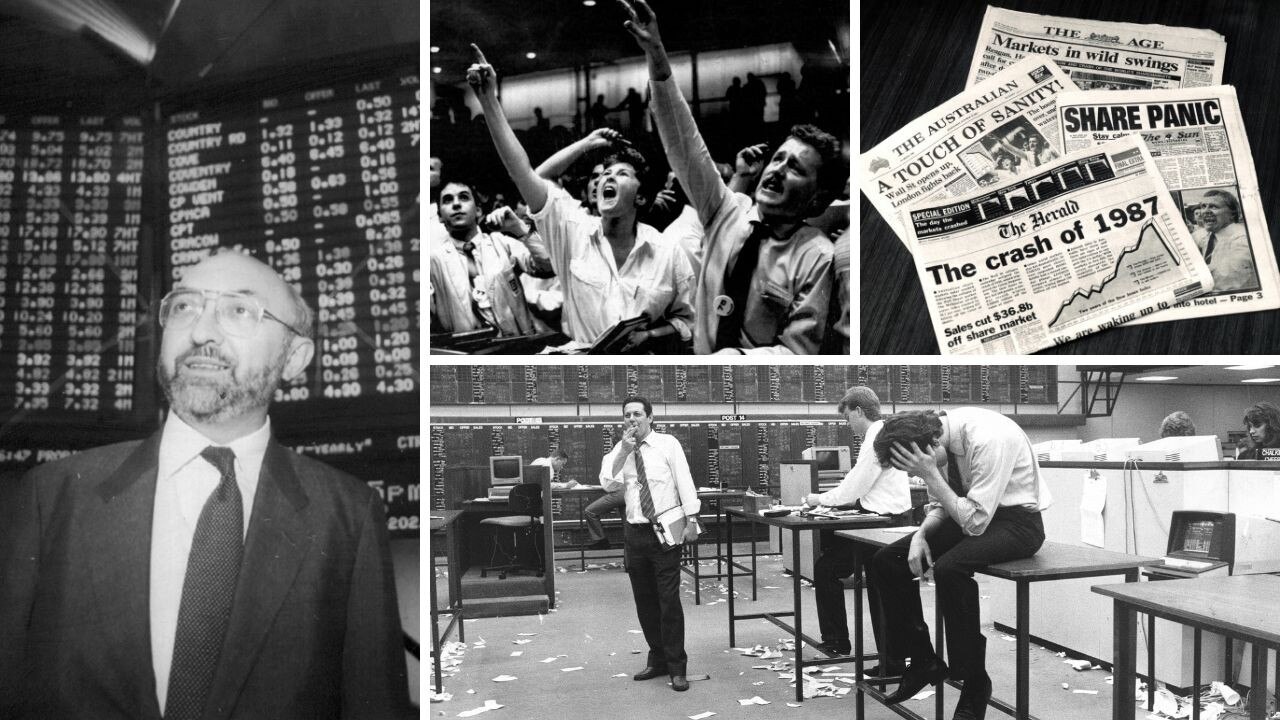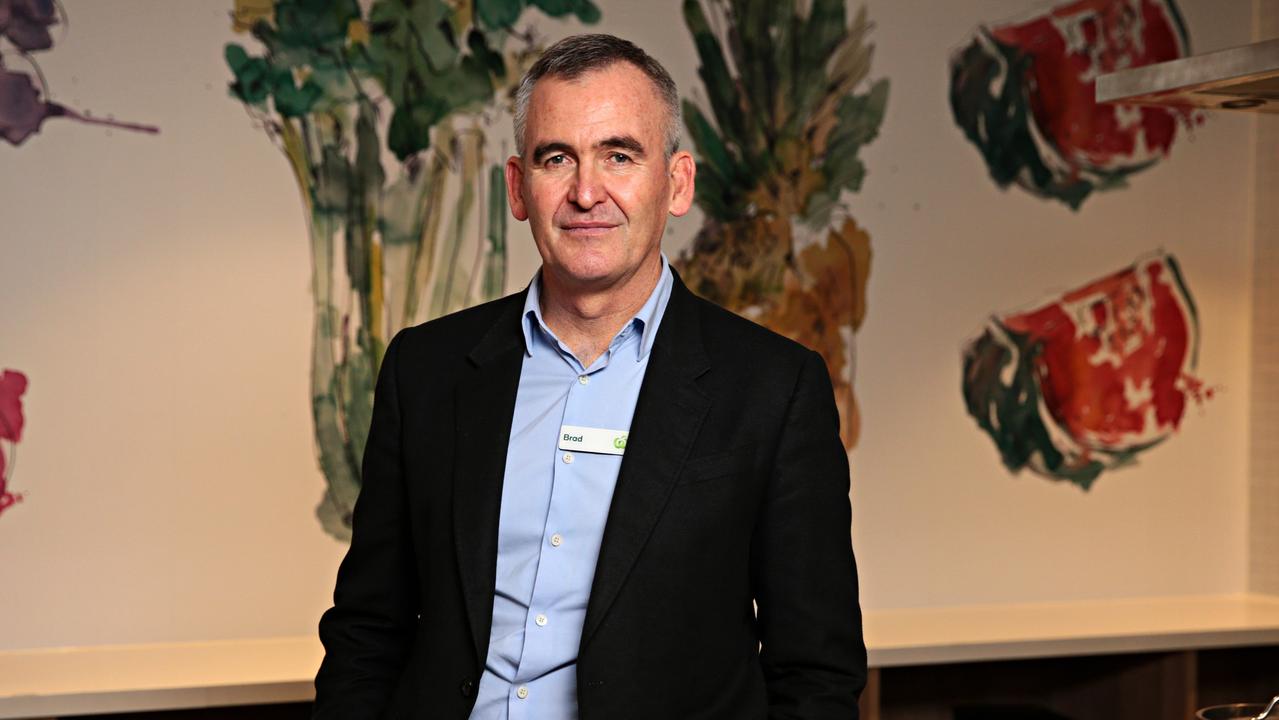NSW Covid-19 outbreak and inflation data unlikely to alter RBA rate decision
The RBA will keep rates on hold at its board meeting next week despite the impact of the NSW extended lockdown on the national economy and the latest inflation figures.

Terry McCrann
Don't miss out on the headlines from Terry McCrann. Followed categories will be added to My News.
The Reserve Bank will sensibly look through the headline near-4 per cent inflation rate and then it’s on to the meeting early Thursday morning of its ‘big brother’ the Fed in Washington which is all-but guaranteed not to behave sensibly.
The RBA was always going to look through that inflation number; NSW now dragging the whole national economy down in this current quarter merely cemented that.
So there will no change to the RBA’s interest rate and other policy settings at its meeting next week; and, even more importantly, to its rhetoric about future inflation and interest rates.
The increased assistance to NSW workers and businesses – and indeed to Victorian businesses – which was announced Wednesday and will reduce, but clearly not go anywhere near offsetting, the NSW lockdown further supports this.
Calls for the RBA to reverse its decision to trim its QE program from $5bn to $4bn a week are as completely clueless as the calls for the Federal Government to reinstate JobKeeper.
What we’ve got with what is now JobKeeper Version 2.3, although it’s called Cov-19 DisPay (or to give it its full title Covid-19 Disaster Payment) is actually better than the original JobKeeper and dramatically better than were it ended as JK Version 1.2.
It’s also dramatically better for us, the taxpayer, because it is JobKeeper without the open-ended rorts which clearly poured tens of billions of dollars into the pockets of especially medium-sized businesses last year.

Instead of directing money for stood-down workers through the business – which opened the door to the rorting - the payments of $750/$450 are now being paid directly to the worker.
The $750 for even partly stood-down full-time workers is where JobKeeper started; the $450 to part-timers is much better than where JobKeeper ended.
Plus businesses (up to revenue size of $250m) can get direct payments up to 40 per cent of their payrolls. So it’s better for both – businesses and the workers. And it’s all built on retaining the connection between worker and employer that was critical in JK1.0.
Yes, inflation was 3.8 per cent over the year to the June quarter. But only because inflation had gone sharply negative in the June quarter last year when the economy was thrown into its mandatory lockdown recession.
In the September quarter inflation sprang back in exactly the same way the economy sprang back when it – except for Victoria – opened up.
Last September quarter’s 1.6 per cent rise – in just the quarter itself alone, after inflation had gone 1.9 per cent negative in the June quarter - made up nearly half of the 3.8 per cent inflation over the four quarters to this June.
The best guide to current inflation, and so both likely future inflation and the RBA’s actions, is what happened in the March and June quarters this year, when the economy was getting back to just as normal as it could in this era of Covid and hair-trigger panicked premiers.
Over the six months it was 1.4 per cent – an annual rate of 2.8 per cent.
Underlying inflation over the half was just under 1 per cent – or an annual rate just shy of the 2 per cent bottom of the RBA’s 2-3 per cent target range.
Components of inflation were understandably still all over the place – transport (petrol and car prices) surged, along with health – but the underlying numbers points to inflation picking up, but slowly, across the board.
So the RBA will be pleased but not disturbed – especially with locked-down NSW and hopefully the post-NSW rebound like we saw last year after Victoria’s lockdown.
It is nothing like the real surging inflation we are seeing in the US which the Fed didn’t see coming, even while it was coming, and is clueless what to do.
Originally published as NSW Covid-19 outbreak and inflation data unlikely to alter RBA rate decision





